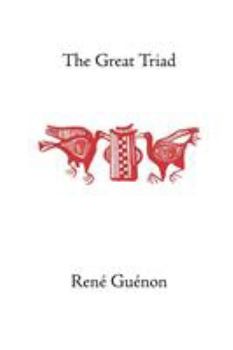Book Overview
Ren Gu non (1886-1951) was one of the great luminaries of the twentieth century, whose critique of the modern world has stood fast against the shifting sands of intellectual fashion. His extensive writings, now finally available in English, are a providential treasure-trove for the modern seeker: while pointing ceaselessly to the perennial wisdom found in past cultures ranging from the Shamanistic to the Indian and Chinese, the Hellenic and Judaic, the Christian and Islamic, and including also Alchemy, Hermeticism, and other esoteric currents, they direct the reader also to the deepest level of religious praxis, emphasizing the need for affiliation with a revealed tradition even while acknowledging the final identity of all spiritual paths as they approach the summit of spiritual realization.
The author refers here especially to the Chinese tradition-principally in its Taoist form, although touching on Confucianism also-in which the "Great Triad" is defined as Heaven-Man-Earth. He places this ternary in the context of universal metaphysics by identifying Heaven with Essence and Earth with Substance, the mediator between them being Man, whose cosmic function is to embody spirit (Heaven) while simultaneously spiritualizing matter (Earth). Exploring Chinese cosmology further, Gu non sheds light on such archetypal polarities as Heaven and Earth, Yin and Yang, Solve et Coagula, Celestial and Terrestrial Numbers, the Square and the Compass, the Double Spiral, and the Being and the Environment, while pointing to their synthetic unity in terms of such ternaries as the Three Worlds, Triple Time, Spiritus-Anima-Corpus, Sulfur-Mercury-Salt, and God-Man-Nature. In spite of its Taoist title, however, the work draws heavily on Hermetic teachings, Hindu and Buddhist metaphysics, and Freemasonic symbolism, not to mention doctrines from Judaism, Christianity, and Islam. It is also Gu non's most comprehensive exposition of the science of Alchemy. Perhaps more completely than in any other work, Gu non here demonstrates how any integral tradition is both a mirror reflecting universal themes found in all other intact traditions and an entire conceptual cosmos unto itself, unique and incomparable.





